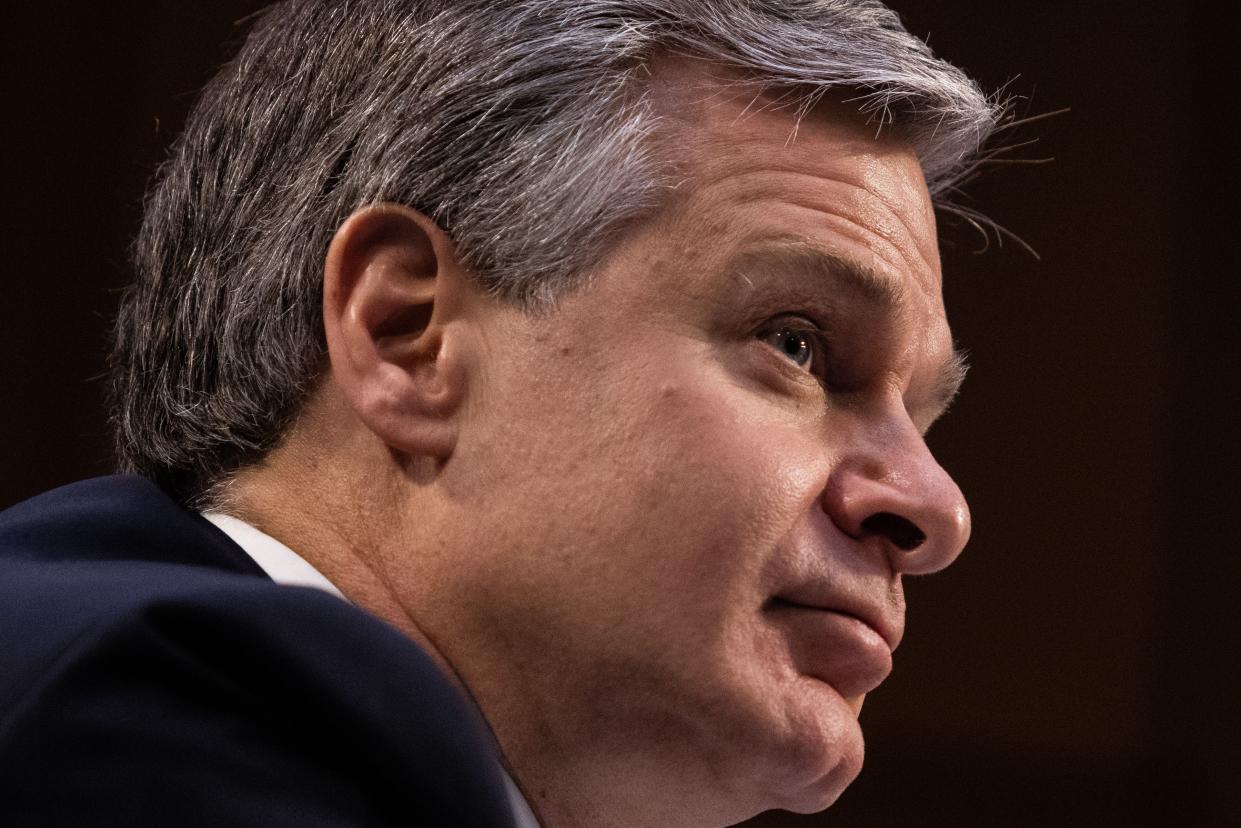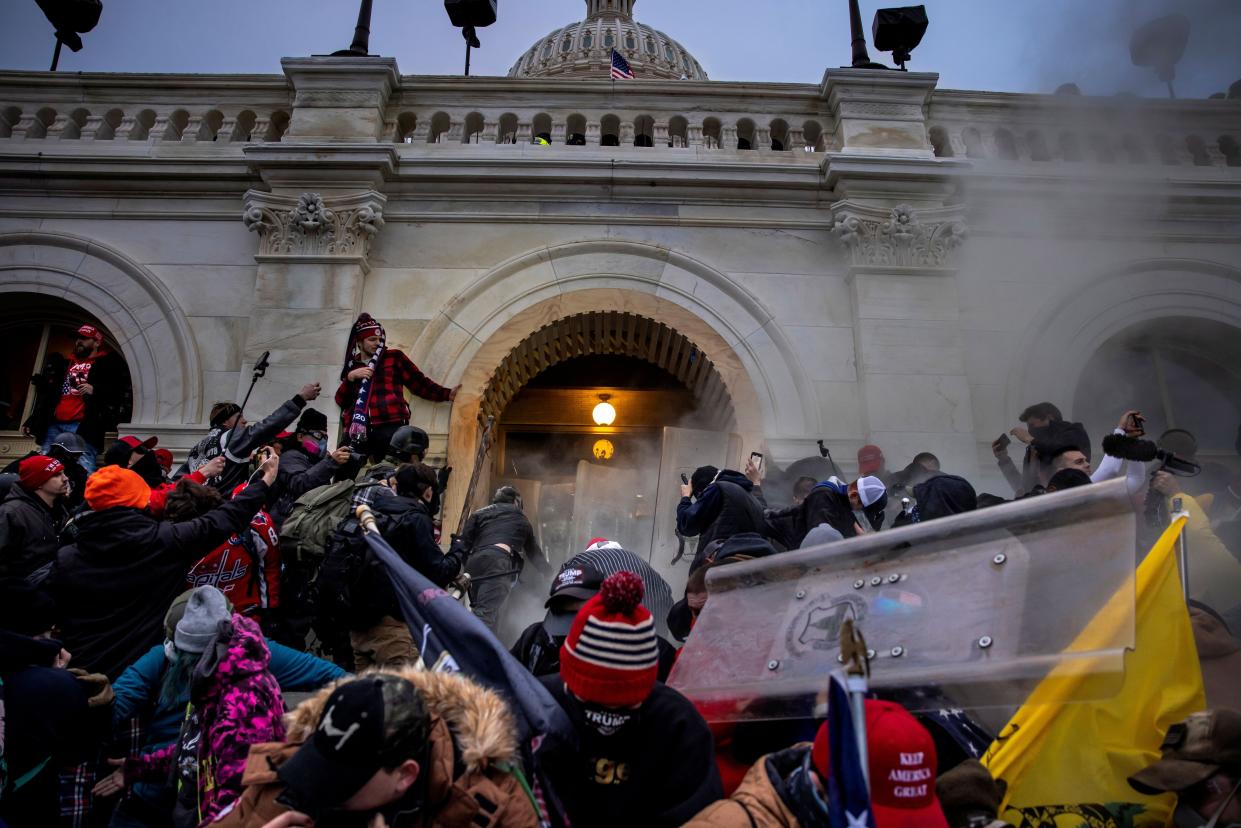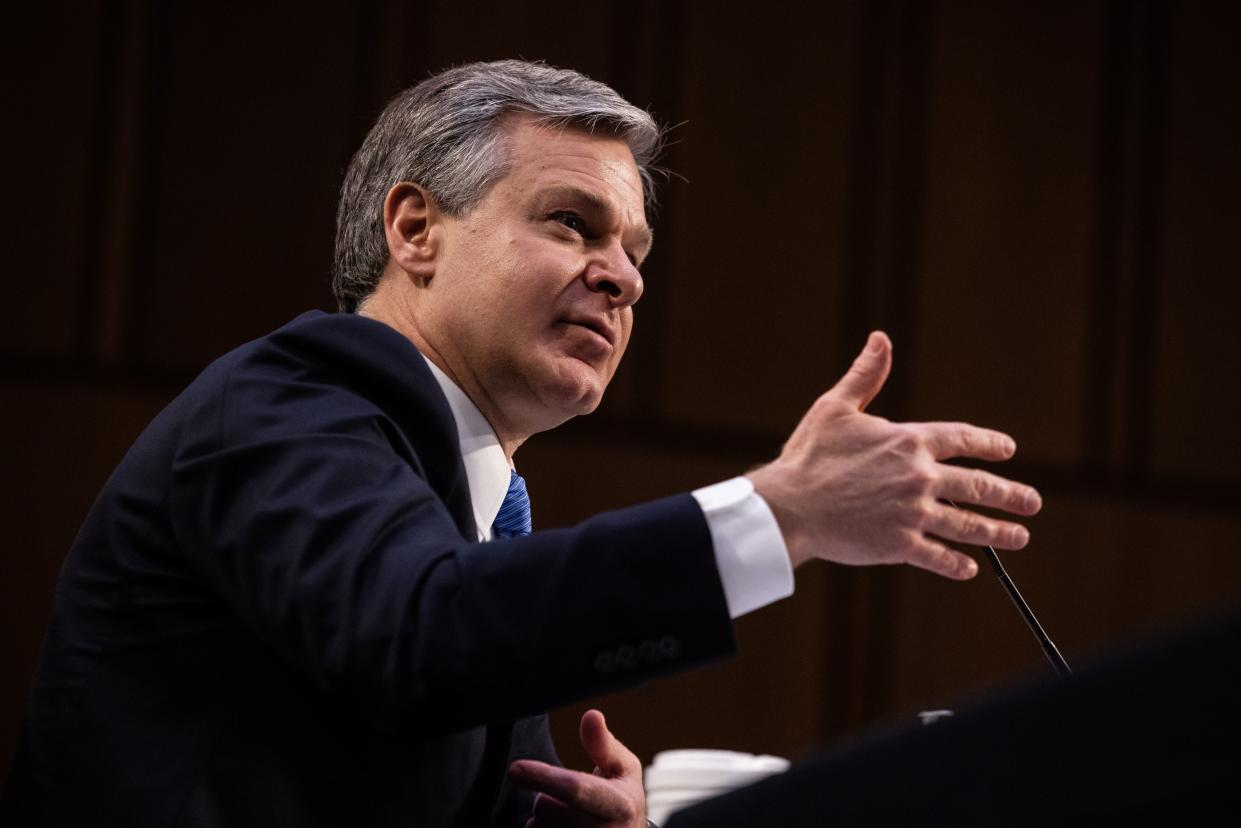FBI chief labels Capitol attack ‘domestic terrorism,’ debunks pro-Trump claims about the riot
FBI Director Christopher Wray told members of Congress on Tuesday that the bloody January attack on their workplace was an act of “domestic terrorism” carried out by Trump-supporting far-right extremists — not left-wing agitators.
Wray’s affirmation, delivered during his first congressional testimony since the 2020 election, was significant in that some Republicans on Capitol Hill, including Wisconsin Sen. Ron Johnson, have pushed the baseless claim that Antifa adherents posing as “fake Trump supporters” instigated the Jan. 6 assault on the U.S. Capitol.
“We have not, to date, seen any evidence of anarchist violent extremists or people subscribing to Antifa in connection with the 6th,” Wray testified before the Senate Judiciary Committee.
By the same token, Wray said there’s “no doubt” that the pro-Trump mob that stormed the Capitol included militia members, followers of the deranged QAnon conspiracy theory and “racially-motivated violent extremists who advocate for the superiority of the white race.”
“I was appalled by the violence and destruction we saw that day,” Wray said. “That siege was criminal behavior, plain and simple, and it’s behavior that we, the FBI, view as domestic terrorism. It’s got no place in our democracy, and tolerating it would make a mockery of our nation’s rule of law.”

Despite Wray’s debunking, Antifa, a loosely organized leftist movement, was referenced by Republicans at Tuesday’s hearing.
Iowa Sen. Chuck Grassley, the committee’s top Republican, spent most of his opening statement voicing concern about violence erupting at some left-wing protests in Portland, Ore., over the summer even though the hearing was supposed to focus on Jan. 6.
Senate Judiciary Chairman Dick Durbin (D-Ill.), echoing an assessment made by the Department of Homeland Security, said Grassley was missing the point.
“We need to be abundantly clear that the white supremacists and other extremists are the most significant domestic terrorism threat facing the United States today,” Durbin said.

Wray’s characterization of the Capitol siege as an act of domestic terrorism highlights the FBI’s growing concern about homegrown far-right extremism.
The FBI director said the bureau is treating the threat of domestic extremism with the same level of urgency as that from international terror groups like ISIS.
“Jan. 6 was not an isolated event,” he said. “The problem of domestic terrorism has been metastasizing across the country for a long time now and it’s not going away anytime soon.”
Senators on the judiciary committee pressed Wray on the security breaches that paved the way for the Capitol riot, which left five people dead, including a police officer, hundreds more wounded and the halls of Congress ransacked.
Of particular interest was the apparent failure of the FBI to widely disseminate a “critical threat” alert issued by a Virginia field office on Jan. 5 warning that extremists were planning to unleash “war” if Congress certified President Biden’s election victory the next day.
But Wray defended his agency’s handling of the memo.
“We did communicate that information in a timely fashion to the Capitol Police and MPD in not one, not two, but three different ways,” Wray said, using an acronym for the Metropolitan Police Department.

Still, Wray conceded that the outcome was “unacceptable” and pledged that the FBI would look into what could have been done differently to prepare before Jan. 6.
Other security officials, including former Capitol Police Chief Steven Sund, testified before Congress last month that they knew some violence could unfold on Jan. 6, but that intelligence did not forewarn anything as dire as what took place. Sund also testified that the Jan. 5 FBI memo never made it to his desk because of complicated chain-of-command protocols mandating that intelligence first be independently verified.
Wray — who was appointed by Donald Trump but often butted heads with him on intelligence matters — has kept a low profile since the former president left office in disgrace after being impeached for inciting the Jan. 6 attack with his false claims of election fraud.
Biden opted to let Wray stay in his post, and the FBI director appeared a bit more willing to speak his mind at Tuesday’s hearing than in previous appearances before Congress.
For instance, the FBI chief smacked down Trump’s baseless claim that Biden cheated in the election.
“We are not aware of any widespread evidence of voter fraud, much less that would have affected the outcome in the presidential election,” Wray said.
Pivoting away from the Jan. 6 attack, Wray also ever so slightly rebuked Trump for calling COVID-19 the “China virus” after Sen. Mazie Hirono (D-Hawaii) asked if he believed such language has contributed to a rise in hate crimes against Asian-Americans.
“I don’t know that it’s really my place as FBI director to start weighing in on rhetoric, but I can assure you that’s not language I would ever use,” Wray said.
